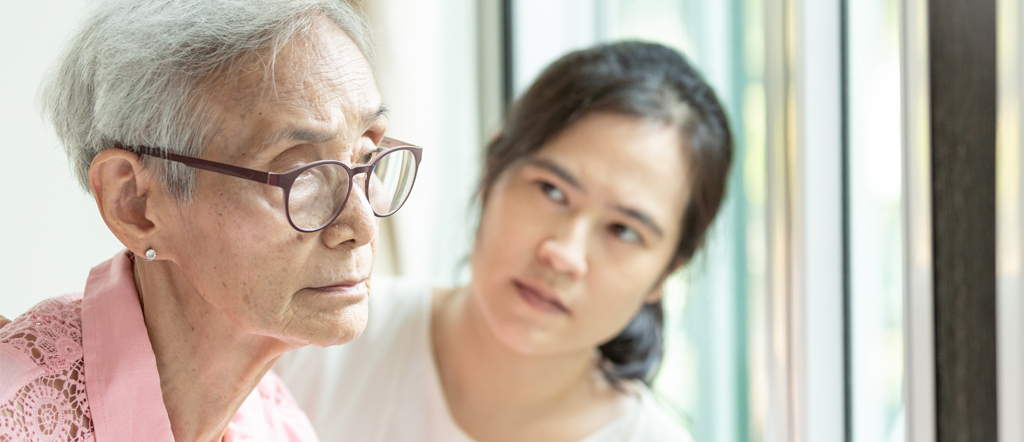
Manage the Pressure of Caregiving While Finding a Place for Yourself
By Chronos Kwok
Being a caregiver to an older person often requires one to make some sacrifices and many caregivers experience a tremendous amount of stress while performing their role. It is also often a role that is under appreciated and as such, it is essential for caregivers to have a greater awareness of their own need for care so that they can avoid caregiver fatigue or burnout. Both can quickly occur, and when it does, can significantly impact your caregiving ability.
Mindfulness practices have been found to help provide some relief during stressful situations and when adapted for caregivers, can assist in managing potential breaking points. Here are some of the tips we recommend that you can consider adjusting your schedule and individual caregiving situations.
Deep breathing
Caregivers are continually experiencing pressure, anxiety, and worry because some things are just out of their control. The best way to deal with moments of stress and anxiety is with deep breathing. It can be done anywhere while sitting in a chair or even in the car at a red light. Take a breath while counting 1 to 10 and then exhale it through your mouth. A series of slow and deliberate breath will do wonders for your heart and mind.
Visualisation
Caring for yourself is about setting aside a few moments of the day when you can do something for yourself. It is not only about taking a day to go to the spa or taking a holiday, but also finding small things that you can do regularly to calm and refresh yourself. Try visualising a relaxing scene – lying on the beach or strolling in the park. It can be a useful tool to give your mind a much-deserved break once in a while. Those who have tried it say they emerge from these mini-breaks feeling refreshed.
Take a walk outside
If you find it hard to sit down, breathe or visualise, you probably need another productive way to relax. One thing you can do is to leave the house and take a short walk outside to break your daily routine. Once you are out of the house, try to immerse yourself in the moment. Observe your surroundings and focus your senses on the sights and sounds in front of you. The more you can immerse yourself deeply in the present, the lighter and more energised you will feel when you return home. If you cannot leave your ageing parents on their own, take them outside with you for a short walk around the neighbourhood. The fresh air outdoors can do wonders for the brain and will help to relieve stress, which can be very beneficial for both of you.
Take a nap
Some may not consider napping as a mindfulness practice, but for some people, the effects of a cat nap can be the same if not better! Being a caregiver probably means you have a million tasks to attend to, and the best time to complete them is when your ageing parent is taking a nap. From laundry to cleaning the floor or even doing the dishes, the list is endless. However, those things can wait. Allow yourself to catch a nap, but stay alert, to give yourself a chance to recharge your batteries. You will be surprised how a short 10 minutes can make a world of difference. Just remember to take a few deep breaths when you wake up before you go about the rest of your day.

